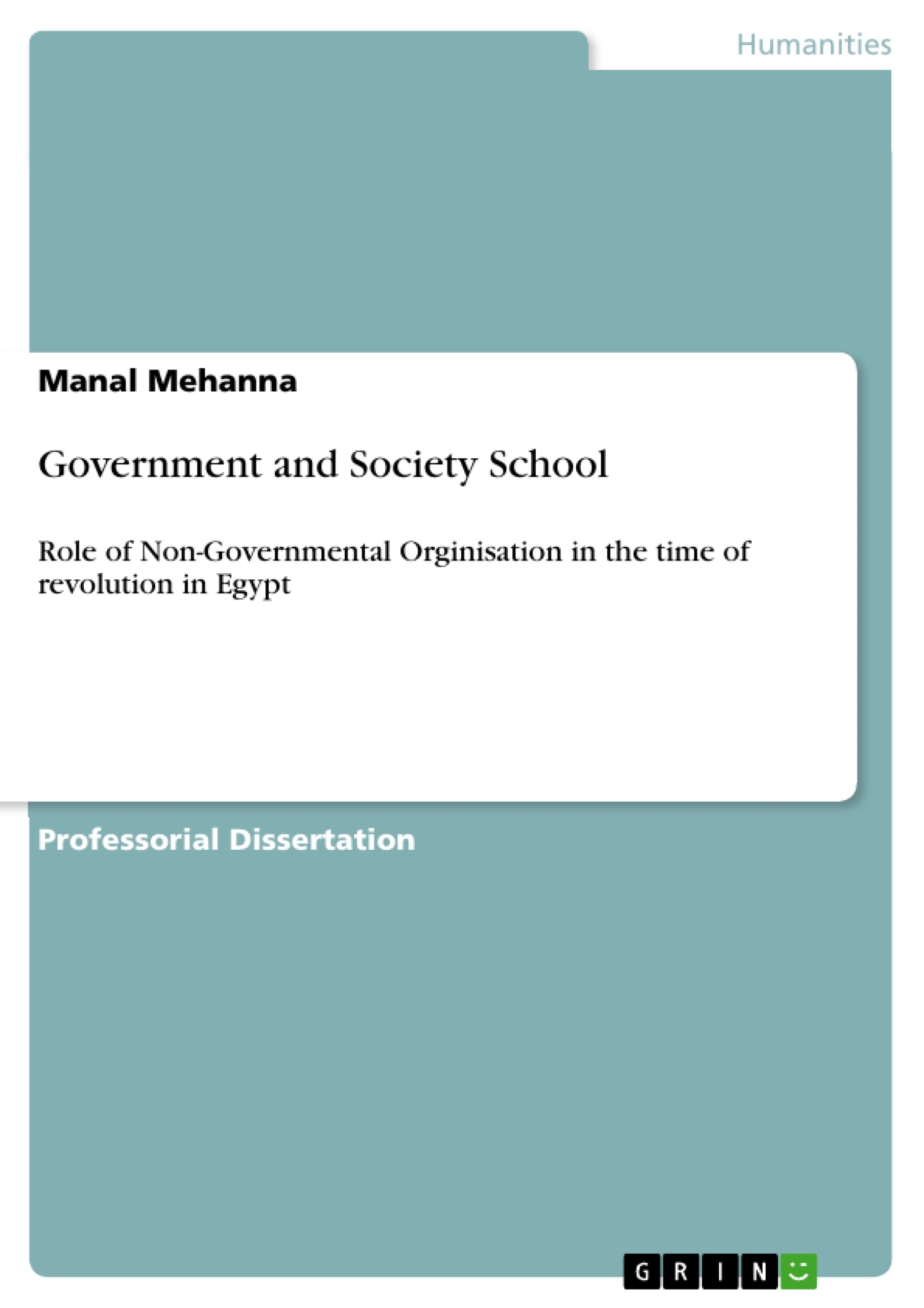This research study aims to highlight the roles of NGOs as a part of civil society during the time of revolution or political changes. The study has taken the Egyptian revolution as a case study to answer the questions as to whether NGOs can play any role during the time of a revolution, and what are the NGOs’ roles are before and after a revolution. The study demonstrates the roles of NGOs in three times around a revolution: before, during and after, through interviews conducted in Egypt with different categories of respondents. This study presents the NGOs’ direct and indirect roles throughout the time prior to and during the revolution. In addition the study explains the crucial role of the NGOs after the revolution, in this case to rebuild a new Egypt and participate in strengthening the civil society of Egypt.
Keywords: Non-government organisation (NGOs), political changes, revolution, Egypt.
Inhaltsverzeichnis (Table of Contents)
- Chapter One: Introduction
- Rationale of the study
- Question of the study
- Objective of the study
- Methodology
- Limitations of the study
- Structure of the study
- Chapter Two: Literature Review
- Definition of CS and NGOs
- Roles of CSOs and NGOs
- NGOs and political change
- NGOs and democracy
- Limitation of the political role of NGOs
- Election and protest and NGOs
- Conclusion
- Chapter Three: Methodology
- The research design
- Key informants interviews
- NGOs interviews
- Beneficiaries interviews
- Limitation of the study
- Ethical implication
- Chapter Four: Country Profile
- Why Egypt?
- Information about Egypt
- Civil society in Egypt
- The road to 2011 revolution
- Chapter Five: Analysis and Discussion
- Analysis of research study
- Role of the NGOs before revolution
- Role of the NGOs in the time of revolution
- Role of the NGOs after revolution
- Discussion of the study
Zielsetzung und Themenschwerpunkte (Objectives and Key Themes)
This research aims to examine the roles of NGOs within Egyptian civil society during periods of revolution and political upheaval. The study uses the 2011 Egyptian revolution as a case study to determine the roles NGOs played before, during, and after the revolution.
- The role of NGOs in promoting democracy and societal change.
- The impact of authoritarian regimes on NGO activity.
- The evolving roles of NGOs during periods of political transition.
- The relationship between NGOs, government, and civil society.
- The challenges and opportunities faced by NGOs in post-revolutionary contexts.
Zusammenfassung der Kapitel (Chapter Summaries)
Chapter One: Introduction introduces the study's rationale, research questions, objectives, methodology, limitations, and structure. Chapter Two: Literature Review explores the definitions and roles of CSOs and NGOs, their involvement in democratization and political change, and the limitations they face, particularly in authoritarian contexts. Chapter Three: Methodology details the qualitative research design, including semi-structured interviews with key informants, NGOs, and beneficiaries. Chapter Four: Country Profile provides background information on Egypt, its history, civil society, and the events leading up to the 2011 revolution. Chapter Five: Analysis and Discussion presents an analysis of the research findings, exploring the roles of NGOs before, during, and after the revolution.
Schlüsselwörter (Keywords)
Non-governmental organizations (NGOs), civil society, political change, revolution, Egypt, democratization, human rights, development, social justice, post-revolution reconstruction.
Frequently Asked Questions
What was the role of NGOs during the Egyptian revolution?
The study explores how NGOs played both direct and indirect roles in supporting civil society and promoting political change during the 2011 revolution.
How did NGOs operate before the 2011 revolution?
Before the revolution, NGOs often worked under authoritarian constraints but contributed to the long-term development of civil society and human rights awareness.
What is the importance of NGOs in post-revolutionary Egypt?
In the post-revolution period, NGOs are crucial for rebuilding the country, strengthening civil society, and participating in the democratization process.
What challenges do NGOs face in political transitions?
NGOs often face legal limitations, shifting government relations, and the challenge of maintaining independence while pursuing social justice.
What methodology was used in this research?
The study utilized qualitative methods, including interviews with NGO representatives, beneficiaries, and key informants in Egypt.
- Arbeit zitieren
- Manal Mehanna (Autor:in), 2011, Government and Society School, München, GRIN Verlag, https://www.grin.com/document/187048



